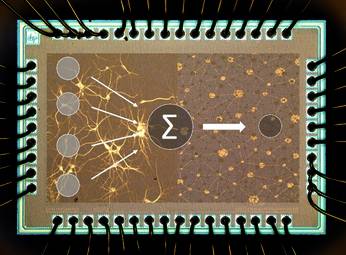The new Collaborative Research Center "Neuroelectronics: Biologically Inspired Information Processing" is funded by the German Research Foundation (DFG) with a funding volume of 11.5 million euros, thus underlining the great success of the research work carried out so far by the expiring research association consisting of the Christian Albrechts University in Kiel as the host university and the partner institutions: Ruhr University Bochum, Brandenburg Technical University Cottbus-Senftenberg, Technical University Ilmenau, Leibniz Institute IHP- Innovations for high Performance Microelectronics Frankfurt / Oder, Leibniz Institute for Science and Mathematics Education Kiel, University Medical Center Hamburg-Eppendorf, Lübeck University of Applied Sciences and University College Cork, Ireland.
The aim of the new Collaborative Research Center is to transfer knowledge about the information paths in nervous systems to technical information processing in order to improve pattern and speech recognition or the energy efficiency of existing systems.
When it comes to cognitive skills like pattern recognition, the human brain works very efficiently, even as the processors of today's computers are becoming more powerful. The research partners are convinced that the brain is a valuable biological model for new approaches to information processing. One of the core building blocks of the new technology approach is the so-called memristive component. This electronic memory component is able to "remember" the course of electrical signals by changing its electrical resistance.
One of the main tasks of the Leibniz Institute IHP is the development of comprehensive memristor models that reflect the behavior of CMOS-integrated memristive components. The project aims to realize the functional simulation in the circuit design level to enable the manufacture of neuromorphic chips in the near future.




